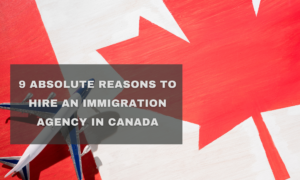In recent years, a study by Statistic Canada said the year between 2000-2018 foreign workers & students increased exponentially. Over half i.e. 59% of new economic class immigrants in 2018 were former Temporary Foreign Workers.
More immigrants are gaining permanent residence with Canadian work and study experience.
Temporary foreign workers also transitioned to permanent residents with the help of more PNPs and the introduction of the Canadian experience class in 2009. Where in the case of study we can see students with the help of post-graduate work-permit joining hands to build Canada’s economy. Due to
the COVID-19 pandemic to facilitate them IRCC introduced a 2-sage approval process and earlier allowed online classes from home without harming their desired PGWP of 3 years.
The federal, provincial, and territorial ministers agreed to continue building a strong immigration system Canadians value and trust.
Ministers committed to advancing shared immigration priorities and enhancing Canada’s immigration policies and programs by endorsing the Federal-Provincial-Territorial Strategic Plan for Immigration 2020-2023. This plan sets out a vision for immigration, highlighting how newcomers contribute to building vibrant communities and an inclusive and prosperous Canada, supported by a robust and responsive immigration system.
Ministers commended the “Team Canada” response to COVID-19, supporting a flexible immigration system focused on meeting critical labour market needs, specifically in the agriculture sector, and ensuring the continued delivery of essential services for newcomers while noting the challenges and steps that have been taken to ensure the health and well-being of temporary foreign workers. Federal, provincial and territorial governments have collectively taken action to ensure the health and safety of temporary foreign workers and other vulnerable newcomers, and it will continue to be a top priority.
Ministers reaffirmed the importance of newcomers, particularly international students, in keeping the economy and Canada’s communities moving forward. Immigration drives economic and demographic growth, which are vital to Canada’s economic recovery and long-term success. While Canada’s ability to receive and successfully integrate newcomers is affected in the short term, long-term drivers for responsible increases to immigration levels remain.
Ministers also discussed the challenges of attracting newcomers to communities outside of major urban centers across Canada. Ministers agreed on the importance of advancing regional economic immigration objectives and acknowledged the proven success and the strong track record of Provincial Nominee Programs to distribute the benefits of immigration across Canada and federal pilots to address targeted regional (Atlantic) and local (Rural/Northern) gaps. Recognizing that immigration is a shared jurisdiction, ministers referenced the development of a new Municipal Nominee Program and agreed that continued collaboration is needed to enable a coordinated immigration response to community and labour market needs while supporting the ongoing success of Provincial Nominee Programs.
Join our forum to discuss all your issues regarding Canada immigration.
If you’re looking forward to studying in Canada visit www.canadastudyvisas.com
|| Admission-Immigration-Recruitment-Settlement ||




Leave a comment